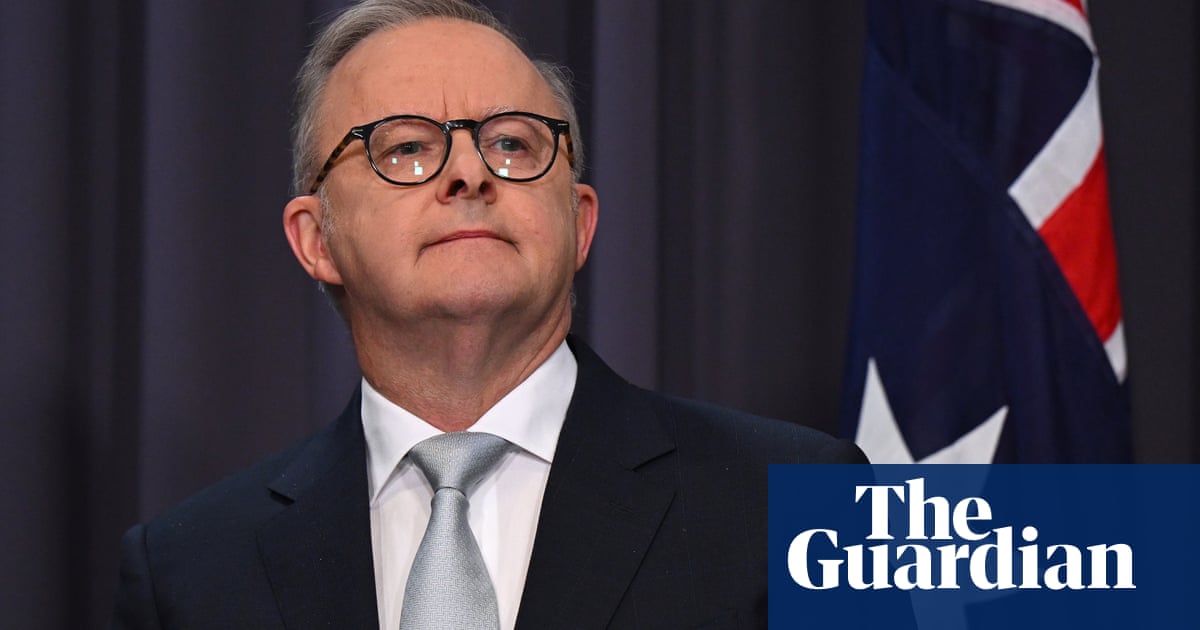For a few hours at the start of this week, it looked like the defence minister, Richard Marles, would have a face-to-face meeting with Donald Trump before his boss,Anthony Albanese, would.
In the days leading up to theNatosummit in The Hague, Asian media outlets reported that the US president wanted to eyeball a meeting of the “IP4” – the regional diplomatic grouping representing Indo-Pacific powers including Australia, New Zealand, Japan and South Korea.
As the US pushes countries to boost their defence spending to 3.5% of GDP and beyond, Trump’s attendance at the side meeting could have added diplomatic insult to political injury for the Albanese government.
Unable to secure a sit-down with Trump in his first six months in power, Albanese missed himat the G7 summit in Canadaand chose not to fly to the Netherlands for the Nato talks, which begin Tuesday night Australian time.
He says the pairhave agreed to meet soon“at a time that’s convenient for both of us”.
The IP4 meeting looks set to be downgraded after Japan’s prime minister, Shigeru Ishiba, and South Korea’s new president,Lee Jae-myung, opted not to go to Europe. New Zealand’s Christopher Luxon will be there, but with the talks expected to be held at the ministerial level, the US president is unlikely to attend.
Sign up for Guardian Australia’s breaking news email
Trump, who is pushing for a lasting ceasefire to halt the bombs flying between Israel and Iran – as Nato leaders plan talks on broader security settings and the war in Ukraine – has bigger priorities.
It could be a diplomatic bullet dodged for Australia’s prime minister, whose handling of the US-Australia alliance is attracting doubts. The Coalition will continue pressuring Albanese to meet the leader of the country’s most important ally and Marles beating him to do so could be awkward.
The combination of international events and the president’s impulsive style is making it difficult for Albanese and senior ministers, including Penny Wong, to argue everything is on track in the relationship with Washington.
Like governments around the world, Labor has struggled to communicate directly with the Trump White House. Traditional processes have been dismantled and some key positions in the US State Departmentleft vacant. Trump is yet to name an ambassador to Canberra and his movesto fire key National Security Council personnelhave weakened the traditional front door for Australian diplomats seeking access to key American decision-makers.
On Tuesday, Albanese was asked on Sky News if the fact Trump did not give him prior notice of the weekend bombings of Iranian nuclear sites proves Australia has become “the forgotten ally”.
Sign up toBreaking News Australia
Get the most important news as it breaks
after newsletter promotion
Albanese rejected the suggestion, noting he met with the US treasury secretary, Scott Bessent, as well as the US trade representative, Jamieson Greer, on the sidelines of the G7.
Trump has publicly praised Albanese and the pair have every chance of a steady relationship once they do get in the same room. But uncertainty in the meantime isn’t helping.
Marles, for his part, said he would not speculate on who he would meet at the Nato summit overnight, saying only that he would have a program of meetings alongside the main talks.
And Albanese, meanwhile, brushed off criticism of his management of the alliance, including his decision not to attend the summit.
“I do note that the same people who constantly say I should do more international travel, every time I do, are critical of it as well,” he said.
Diplomacy was difficult before Trump was elected president, but his ability to turn politics on its head isn’t making Albanese’s life any easier.
